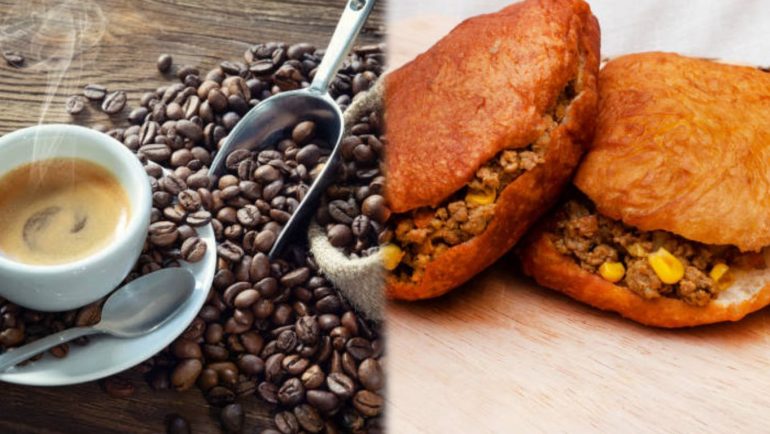Know your rights when it comes to intellectual property
By Nomali Cele
For people in creative and innovative industries, ideas are everything. But in a capitalistic system where money rules everything, all these ideas need external investment to come to life. When submitting proposals and pitching their ideas, inventions and more opens creators up to theft. For many creative or innovative people, having their ideas stolen has almost become something of a job hazard but one they have to accept none the less because, more often than not, they are dealing with big corporates, which have the funds and lawyers to drag out the battle for the idea or product.
As a creator, you do have rights that are recognised by the law. The burden, however, is with you to prove that the idea was yours, that you shared it with the parties who have ripped you off and that you deserve compensation. Again, capitalism.
There are different types of legal ways to register your intellectual property

Copyright
You know how you can’t just pitch a concert and perform someone else’s song and make money; or how you are not allowed to photocopy and redistribute books? That’s copyright, which the Companies and Intellectual Property Commission describes as, “A copyright is an exclusive right granted by law for a limited period to an author, designer, etc. for his/her original work.”
So if you are working in an industry where you are producing tangible works (songs, film, visual art, computer programmes etc) you can assert your copyright if you believe it has been violated.
Trademark
A trademark – or that little “tm” next to a name, slogan etc – is a way to show that something is a legally registered brand name or a logo. According to CICP, a trademark is used to identify them, “services or goods of one person and distinguishes it from the goods and services of another.”
Trademarks are an important way for creators to distinguish their creations or assert superior quality. To this end, you can’t trademark “chicken” but you can trademark your brand, selling points or recipes.
For a trademark to be recognised, it has to be registered and renewed every 10 years.
Patent
Patents deal specifically with those creators who invent or create new processes of getting something done. A patent can be held exclusively for 20 years in South Africa and, in that time, other creators and organisations will not be able to use your new invention or process in their own work.
Patent come in three categories: utility patents, design patents and trade secrets. Some companies refrain from applying for patents opting to keep their inventions as trade secrets. Applying for and registering for a patent makes it public information. Sure rivals cannot use the invention but it makes “moving in silence” that much harder.
Like trademarks, patents require that you pay a renewal fee, only annually this time.
There are other, informal, ways to assert your intellectual property, such as keeping all written communication between you and the organisations you are trying to get funding from. An inability to patent or trademark your ideas doesn’t make it moral or legal for those with money to steal from you. So always keep the receipts when communicating with potential investors so you have a leg to stand on should you suddenly see your idea in living colour without your knowledge or you getting compensated and credited as the originator.
Written by: Kayafm Digital
Similar posts
MORE ARTICLES

SA Lotto + Lotto Plus Results for tonight: Wednesday, 02 July 2025

WATCH: Actress, Noxolo Dlamini on starring in the Sarafina play & testing moments as a creative

WATCH: Standard Bank Young Artist Award Winner Modise Sekgothe on Kaya 959 for Youth Week Takeover

Elsa Majimbo on how much she misses living in SA – ‘I miss everything, even the crime’

WATCH: Standard Bank Young Artist Award Winner Muneyi on Kaya 959 for Youth Week Takeover
QUICK LINKS
UpComing Shows

959 Music Weekdays
Kaya 959 Hits
Real. Familiar. Memorable. Kaya 959 brings you the music you know and love from our playlist. Uninterrupted. Thursdays 20h00 to 21h00
close
The Best T in the City
With T Bose
He has held it down in the world of mid-morning radio with the best music, riveting topics, brilliant mixes and interesting guests. Every weekday, The Best T proves why he is the BEST by connecting to you like only your bro or favourite uncle could. He lets his listeners dictate the songs they want to hear in the ever-popular Top 10 at 10, and his Three Teaspoons never run out. Catch The Best T in the City Mondays to Fridays from 09h00 to 12h00.
close
Feel Good
With Andy Maqondwana
Feel good about feeling good! That's exactly what The Feel-Good show is about. An escape from the negativity that surrounds us, indulging you in good feels. Pass it on to one and all. Spread the good feeling around Gauteng with Andy Maqondwana.
close
Kaya Biz
With Gugulethu Mfuphi
The world of business is simplified for you by Kaya Biz with Gugulethu Mfuphi. This fast-paced award-winning business show talks to the corporate giants as well as up and coming entrepreneurs about their wins and challenges. Gugulethu invites guests to offer their analyses of markets and economies, and also delves into issues of personal financial wellness. Kaya Biz airs Mondays to Thursdays 18h00 to 19h00.
close
Point of View
With Phemelo Motene
Point of View with Phemelo Motene delves into the day’s current affairs, touches on real issues that affect people’s daily lives and shares expert advice on questions posed by the audience. Mondays to Thursdays 20:00 to 22:00.
closeConnect with Kaya 959
DownLoad Our Mobile App
© 2025 Kaya 959 | On The Street On The Air










